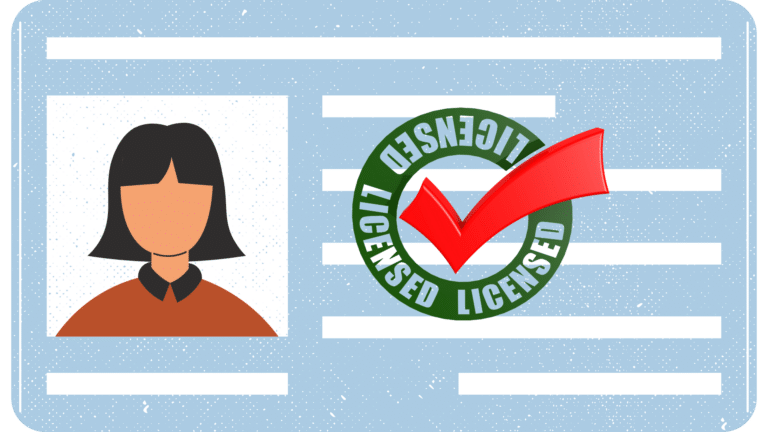Do Locksmiths Need a License?
When it comes to the locksmith profession, one common question that arises is whether locksmiths need a license to practice. The answer to this question may vary depending on the specific location and jurisdiction. In this comprehensive blog, we will delve into the world of locksmith licensing, exploring the importance of licensure, the varying regulations across different regions, and the potential benefits of working with a licensed locksmith.
The Importance of Licensing
Consumer Protection
- Licensing helps to ensure that locksmiths meet certain standards of competence and professionalism, thereby safeguarding consumers against unqualified or unscrupulous practitioners.
- It provides a level of assurance to the public that the locksmith has undergone the necessary training and possesses the skills required to perform locksmith services effectively and ethically.
Industry Standards
- Licensing often involves adherence to industry standards and best practices, contributing to the overall quality and reliability of locksmith services.
- It promotes a sense of accountability within the locksmith profession, encouraging practitioners to uphold a high standard of workmanship and ethical conduct.
Varying Regulations
United States
- In the United States, locksmith licensing requirements vary widely from state to state. Some states have stringent licensing regulations, while others have minimal or no requirements.
- Certain states may mandate specific training, background checks, and/or successful completion of a licensing exam for locksmiths to practice legally.
United Kingdom
- In the United Kingdom, locksmiths are not required to obtain a license to operate. However, there are voluntary certifications and memberships available through organizations such as the Master Locksmiths Association (MLA) that demonstrate a locksmith’s commitment to professionalism and skill.
Australia
- In Australia, the licensing of locksmiths is governed at the state level. Each state has its own regulatory framework, with some mandating formal qualifications, police checks, and adherence to specific codes of conduct.
Benefits of Working with a Licensed Locksmith
Expertise and Reliability
- Licensed locksmiths are more likely to possess the necessary skills, knowledge, and experience to handle a wide range of lock and key issues competently.
- They are often well-versed in the latest industry technologies and best practices, providing customers with peace of mind regarding the quality of workmanship.
Legal Compliance
- Engaging a licensed locksmith helps ensure compliance with local laws and regulations, reducing the risk of legal complications associated with unlicensed or unregulated locksmith services.
Consumer Confidence
- Customers can have greater confidence in the legitimacy and professionalism of licensed locksmiths, knowing that they have met established standards and are accountable for their work.
Conclusion
While the requirements for locksmith licensing vary significantly across different regions, the overarching goal remains the same: to protect consumers and uphold industry standards. Whether mandated by law or available as a voluntary certification, licensing can serve as a valuable marker of a locksmith’s dedication to professionalism, expertise, and ethical conduct. As a consumer, it is important to research the licensing regulations in your area and consider the potential benefits of engaging a licensed locksmith for your security needs.
In summary, while the need for locksmiths to obtain a license differs by location, the overall aim of licensing is to ensure the competence, integrity, and accountability of locksmiths, thereby enhancing consumer protection and confidence in the locksmithing profession.
FREQUENTLY ASKED QUESTIONS
Why is licensing important for locksmiths?
Licensing ensures that locksmiths have met certain standards of competency and professionalism, providing assurance to customers regarding the quality and reliability of their services.
Are locksmith licensing requirements the same in every location?
No, licensing requirements for locksmiths vary by state, country, or jurisdiction. It’s essential for locksmiths to familiarize themselves with the specific regulations governing their area of practice.
What qualifications are typically required to obtain a locksmith license?
Qualifications for locksmith licensure may include completion of formal training programs, apprenticeships, passing a background check, and sometimes passing an exam to demonstrate proficiency in the trade.
Do all locksmiths need to be licensed, or are there exceptions?
In many jurisdictions, locksmiths are required to hold a license to legally practice their trade. However, there may be exceptions or exemptions for certain types of locksmithing work, such as minor repairs or non-emergency services.
What are the consequences of operating as an unlicensed locksmith?
Operating without a license can result in legal penalties, fines, and even criminal charges in some cases. Additionally, unlicensed locksmiths may face difficulties in building trust with customers and securing contracts.
How can customers verify if a locksmith is licensed?
Customers can typically verify a locksmith’s license by checking with the appropriate licensing authority in their area or asking the locksmith to provide proof of licensure before hiring them for a job.
Are there any ongoing requirements or obligations for licensed locksmiths?
Licensed locksmiths may be required to renew their licenses periodically, complete continuing education courses to stay updated on industry developments, and adhere to ethical standards and codes of conduct.
What should customers do if they encounter an unlicensed locksmith?
Customers should exercise caution when dealing with unlicensed locksmiths and consider reporting them to the relevant authorities. It’s essential to prioritize safety and security when choosing a locksmith for any job.
Where can locksmiths find information about licensing requirements in their area?
Locksmiths can typically find information about licensing requirements by contacting local government agencies, such as state licensing boards or regulatory bodies responsible for overseeing locksmithing professions. Additionally, industry associations and online resources may provide guidance on licensure procedures and regulations.


